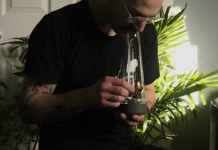It starts quietly. It is a small street in Barcelona, with chatter in the dark. Laughing, smoke wanders listlessly, and the music is low behind an unmarked door. This isn’t rebellion. It is much more organized. The shrouded but flourishing culture of the cannabis clubs in Spain started just as such, small, secretive, and based on trust. These clubs are not just another average hangout spot; they are exclusive places of escape for individuals who want to use cannabis without stepping out of the law, yet enjoy it collectively. The history of cannabis in Spain is not that of anarchy but of regulation, and such clubs are the embodiment of it.
From Shadows to Recognition
The consumption of cannabis in Spain existed in the underworld for decades. Public consumption was not actively supported, but people still desired a responsible area to take pleasure in it. Then it crossed the mind, private associations, where adults were able to meet, grow, and trade cannabis under strict conditions. That is how the cannabis clubs in Spain appeared: a brilliant circumvention between legality and the freedom of the self. They do have a self-regulated system of operation, and only members can be involved. The membership is not common to purchasing a ticket but rather a promise of privacy and adhering to community regulations. At the same time, they are exclusive rather than elitist in each club. It’s about belonging. It is a contemporary subculture that has balanced law, leisure and lifestyle in a manner that no other nation has.
Culture Wrapped in Freedom
It is bizarre to enter one of these clubs. It does not have a glitzy board or a spat. In its place, there are soft lights, artistic wall paintings, and non-aggressive conversations. Members take sips of coffee or juice as they tell stories. In this case, cannabis is not taboo, but is an art form, and is appreciated and consumed consciously. The fact that cannabis clubs in Spain are a refreshing change to what many travelers assume them to be, i.e., no pressure, no chaos, only people enjoying each other because of their common interests. The vibe is open but careful. Club managers make sure that quality control, responsible consumption, and a respectful environment are guaranteed. This environment transfigures cannabis as a drug, which becomes a symbol of communion and peaceful liberty.
Hidden Adventures and Tourism
Tourism has found a new, hidden face of Spain. Millions of people come there to visit beaches, architecture, and food, but more of them are coming to find one more experience, which is the hidden beauty of the cannabis culture. Cannabis tourism has turned into a major activity in the cities of Barcelona and Madrid, and this has not been due to the loud advertising but rather through the curiosity of word-of-mouth. Tourists read about the cozy, intimate atmosphere of these clubs and wish to experience it themselves. It is not an easy process to join one, as you have to be invited, registered, and approved, which contributes to the excitement. To several travelers, such secret lounges provide them with a feeling of belongingness much more than conventional nightlife. They go with the word that it is not only cannabis but about intimacy, community and peaceful exploration.
Law, Loopholes, and Legality
The situation itself is interesting, as far as the law is concerned. Cannabis can not be sold or openly used by the population, but in Spain, the laws of the law permitting the use of cannabis privately can be interpreted. This grey area was the basis of the whole club movement. Members do not exchange cannabis commercially but do so collectively, and clubs are governed by the stringent laws of association, which are strictly private. It is a fine line, and excessive publicity would jeopardize the concept, whereas excesses in secrecy would suffocate the concept. Mostly, the authorities are tolerant of the system provided that there is adherence to rules. Nevertheless, beginners have to realize: these clubs are not tourist traps and party places. They are controlled social groups that operate on mutual respect and law. The balance between freedom and control is so delicate that it ensures the cannabis clubs in Spain are so unique and sustainable.
Changing Perceptions and Social Impact.
The second-order effects can be seen. The locals do not regard such clubs as illegal dens, but as safe and organized communities. They generate employment, promote favorable use, and minimize street dealing. It is a cooperative, rather than an addictive, environment. Research even indicates that the model of cannabis in Spain can be used to influence the changes at the international level. The clubs provide a model of moderation by community and not by strong government, by keeping order without stifling, and by liberality without anarchy.
A Growing Future for Clubs
These clubs have a bright future, but have a question mark. The silent test that Spain is undertaking gives hope to cannabis reformers all over the world as the world changes its perception of the drug. Debates in politics are underway, though the cultural background is well established. Association-based systems like these are becoming a topic of consideration in more regions on a daily basis. Technology has not been left behind, and this has assisted the members in locating reliable clubs and keeping in touch. The appeal is the same, though, personal contact instead of business. Inside, time slows down. There is music humming, smoke swirling, and laughing.
Conclusion
The cannabis history of Spain is not one of decadence- it is the history of evolution. The emergence of private clubs has shifted the consumption perspective of society and made it taboo to trust. Everyone interested in finding real and approved cannabis clubs in Spain will be well advised by cannabis-clubs-near.me, a site that matches enthusiasts with real clubs. These clubs are not just smoke and laughter, but a culture based on respect, privacy and progress and that freedom, in the right hands, can be a beautiful thing.




